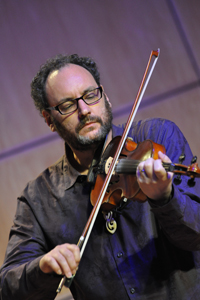Don't see what you're looking for?
Main Site
Berklee.eduCampuses and Schools

Phil Farnsworth
Mark Simos
For media inquiries, please contact Media Relations
"I try to ground everything I do as a teacher in my own work as a musician and creative artist. I feel that the best teaching and learning come out of the practice of reflecting on one's own work. That's how students are going to build on whatever system you've come up with, apply it to their own experience, and adapt it for themselves. It's a little bit of 'teach someone to fish.'"
"What I try to model for my songwriting students is that you can really find your own way as a songwriter. You can build your work on some very unique musical influences and styles; you don't have to write only for the mainstream market. The music industry is evolving now very much in that direction. The old model is, if you want to be a hit songwriter, here are the formulas. That might have worked at one point, but it would be a disservice to our students to teach them that now. The new music industry is like a mosaic of stylistic niches. You want to be able to write very flexibly in a way unique to you, but also adapt to opportunities to collaborate with artists and writers with very diverse backgrounds."
"All of this winds up affecting the way I teach. I don't stand in front of the class dissecting students' songs. That style of critique reinforces the false notion that there is just one way of writing a good song, oriented towards following mainstream conventions. What about the song that's going to come along every once in a while—like John Hartford's Gentle On My Mind—that breaks every single rule and is a brilliant song?"
"So instead, I do more of an experience-based critique. It's very participatory. I ask students to pay close attention to their experience as a listener and report that experience as accurately as they can to the writer. It's a great initial way to give critique, because the rush to offer quick fixes can sometimes do as much harm as good."
"This technique comes entirely out of my core philosophy of encouraging students to ground what they're doing in their own experience. I'm really trying to educate people for a diverse marketplace. I encourage students to take chances and to draw on the unique signature of own musical influences and history. But I also encourage them to tend to craftsmanship and quality, and not be satisfied with half-done work."
Get More Information
By requesting information from Berklee, you will receive emails about our educational programs, student resources, facilities, and more based on your selections.
Thank you for requesting information.
Check your inbox for an email from Berklee. You will start to receive program information, updates, and deadline reminders.
Find the program that's right for you with Berklee's Find Your Program tool.